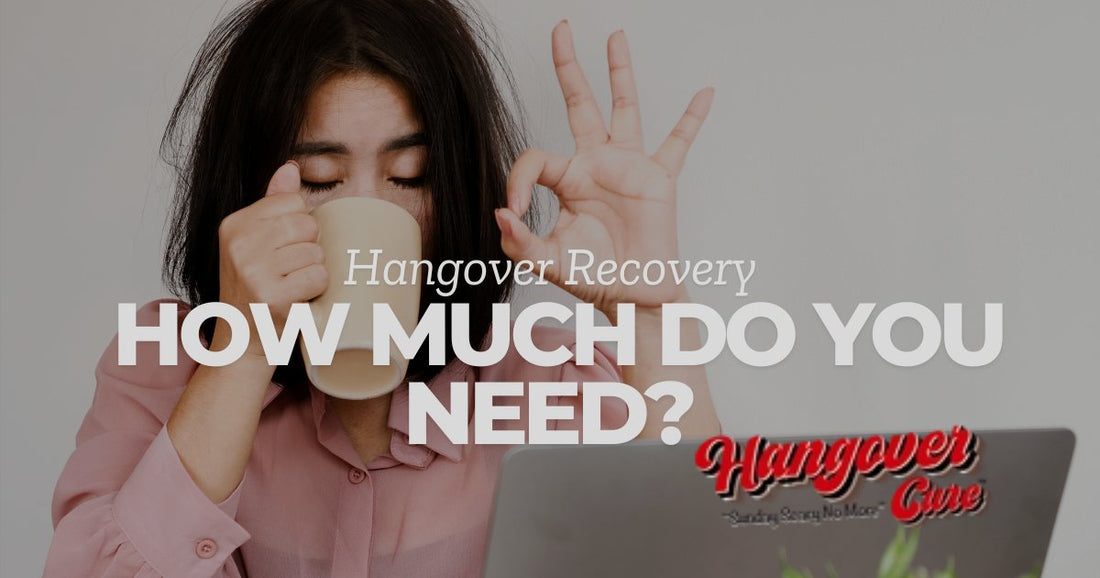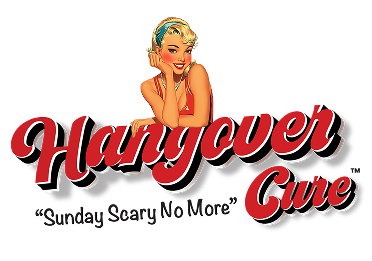
The Role of Sleep in Hangover Recovery: How Much Do You Need?
Share
When it comes to surviving the aftermath of a wild night out, The Role of Sleep in Hangover Recovery: How Much Do You Need? is more important than you might think. Sleep isn't just about feeling rested — it’s your body’s secret weapon to bounce back faster and stronger after alcohol takes its toll. Let's dive into the powerful science and easy strategies that can help you recover like a pro!
Introduction: Why Sleep is the Ultimate Hangover Cure
If you've ever woken up after a night of heavy drinking feeling like a truck hit you, you're not alone. Most people underestimate how vital quality sleep is for hangover recovery. When you sleep, your body gets to work repairing cells, detoxifying the blood, balancing hormones, and flushing out toxins. Without enough rest, every hangover symptom — headache, fatigue, nausea — gets amplified.
Sleep acts like a personal reset button, and during hangover recovery, hitting that button is non-negotiable.

Understanding Hangovers: What’s Happening to Your Body
After alcohol floods your system, dehydration, electrolyte imbalance, and inflammation wreak havoc on your organs, especially the brain and liver (according to Mayo). Alcohol fragments sleep, meaning you may think you slept for eight hours, but your body didn’t get the deep, restorative rest it craves.
A hangover isn't just about the alcohol — it’s about how poorly your body recovers during fragmented sleep.
The Science Behind Sleep and Hangover Recovery
How Sleep Affects Brain Recovery After Alcohol
Alcohol affects your REM (rapid eye movement) sleep — the deepest and most critical part for brain recovery(Sleep Foundation) . Lack of REM sleep can cause memory issues, mood swings, and worsen headaches.
Sleep and Liver Detoxification During a Hangover
Your liver works overtime to metabolize alcohol. Deep sleep supports liver functions by lowering the body's stress levels and promoting blood filtration. No good sleep? Hello, prolonged hangover.
How Much Sleep Do You Actually Need After Drinking?
A major question we all ask ourselves post-party: "How much should I sleep?" Generally, 7-10 hours of uninterrupted, high-quality sleep is ideal after alcohol intake. Your body might even crave more, depending on several factors.
Factors That Influence Your Sleep Requirements
Amount of Alcohol Consumed
Heavy drinking demands longer sleep periods because your body needs extra time to detox.
Age and Health Condition
Older adults or those with pre-existing conditions (like diabetes) often need more sleep to recover fully.
Sleep Debt Accumulation
If you’ve been skimping on sleep before drinking, expect to need even more hours to feel right again.
The Best Sleep Strategies for Faster Hangover Recovery
Napping vs. Full Night Sleep: What's Better?
While naps can offer a quick energy boost, nothing beats a full night's deep, unbroken sleep for true hangover recovery.
Creating an Ideal Sleep Environment Post-Drinking
-
Dim the lights
-
Cool the room
-
Use white noise
-
Stay hydrated (water + electrolytes!)
Common Myths About Sleep and Hangovers Debunked
-
Myth: "You can catch up on sleep the next night."
Truth: Recovery sleep must happen the same night for best results. -
Myth: "Passing out equals good sleep."
Truth: Alcohol-induced sleep isn't restorative.
Can You "Sleep Off" a Hangover Completely?
Unfortunately, no. Sleep dramatically helps recovery but doesn't erase all symptoms if your body is still inflamed or dehydrated. Sleep + hydration + nutrition = complete formula.
Sleep Aids: Should You Use Them After Drinking?
Natural Sleep Aids vs. OTC Solutions
Stick with natural solutions like melatonin, magnesium, or chamomile tea. Avoid OTC sleep meds unless advised by a healthcare professional — they can worsen dehydration and liver strain.
Learn how long should hangover last
Nutrition and Sleep: How Food Helps or Hurts Recovery
A high-protein, low-sugar meal before bed can stabilize blood sugar and reduce alcohol's negative effects. Think eggs, toast, or yogurt.
When to See a Doctor for Hangover Symptoms
If you experience extreme confusion, seizures, or loss of consciousness, it’s no longer "just a hangover." Seek emergency care immediately.
FAQs About Sleep and Hangovers
1. Can more sleep completely cure a hangover?
No, but it significantly reduces symptoms.
2. Is it bad to sleep immediately after drinking?
Not if you've hydrated first.
3. What is the best sleep position after drinking?
Sleeping on your side helps prevent choking risks from vomiting.
4. How long should you nap after a hangover?
Short naps (20–30 minutes) are good, but deep night sleep is better.
5. Should I take melatonin after drinking?
In moderation, yes — but consult a doctor first.
6. Why do I wake up early after drinking?
Alcohol disrupts your REM sleep cycles, causing premature awakenings.
Conclusion: Sleep Smarter for Quicker Hangover Recovery
In the battle against brutal hangovers, sleep emerges as the clear MVP. Now that you know The Role of Sleep in Hangover Recovery: How Much Do You Need?, you’re armed with the tools to recover faster, smarter, and healthier. The next time you party hard, make sure your pillow is part of your plan!
Ready to Feel Even Better?
Discover the best natural hangover cures trusted by thousands!
👉 Check out our Top-Rated Hangover Solutions here and wake up refreshed!
